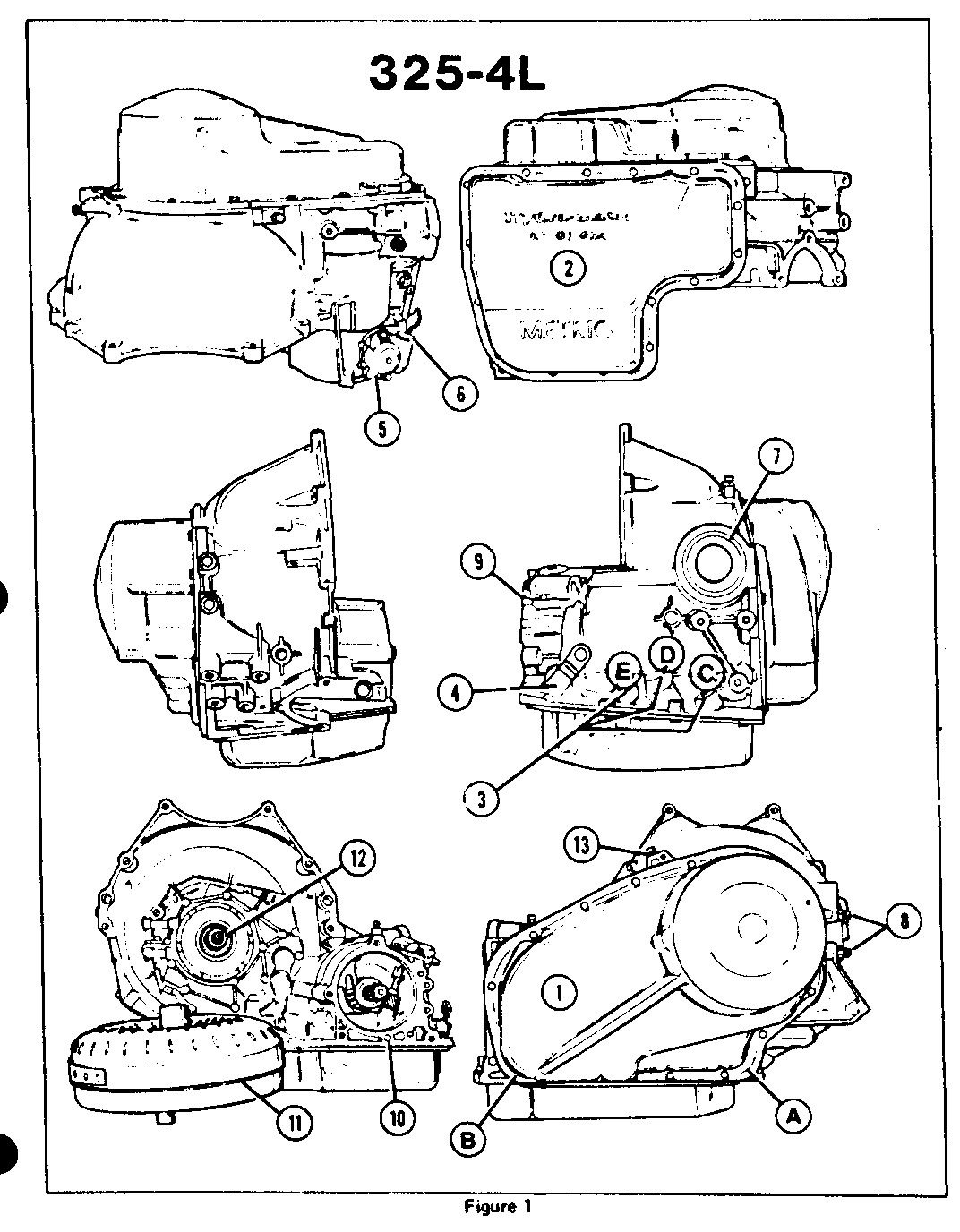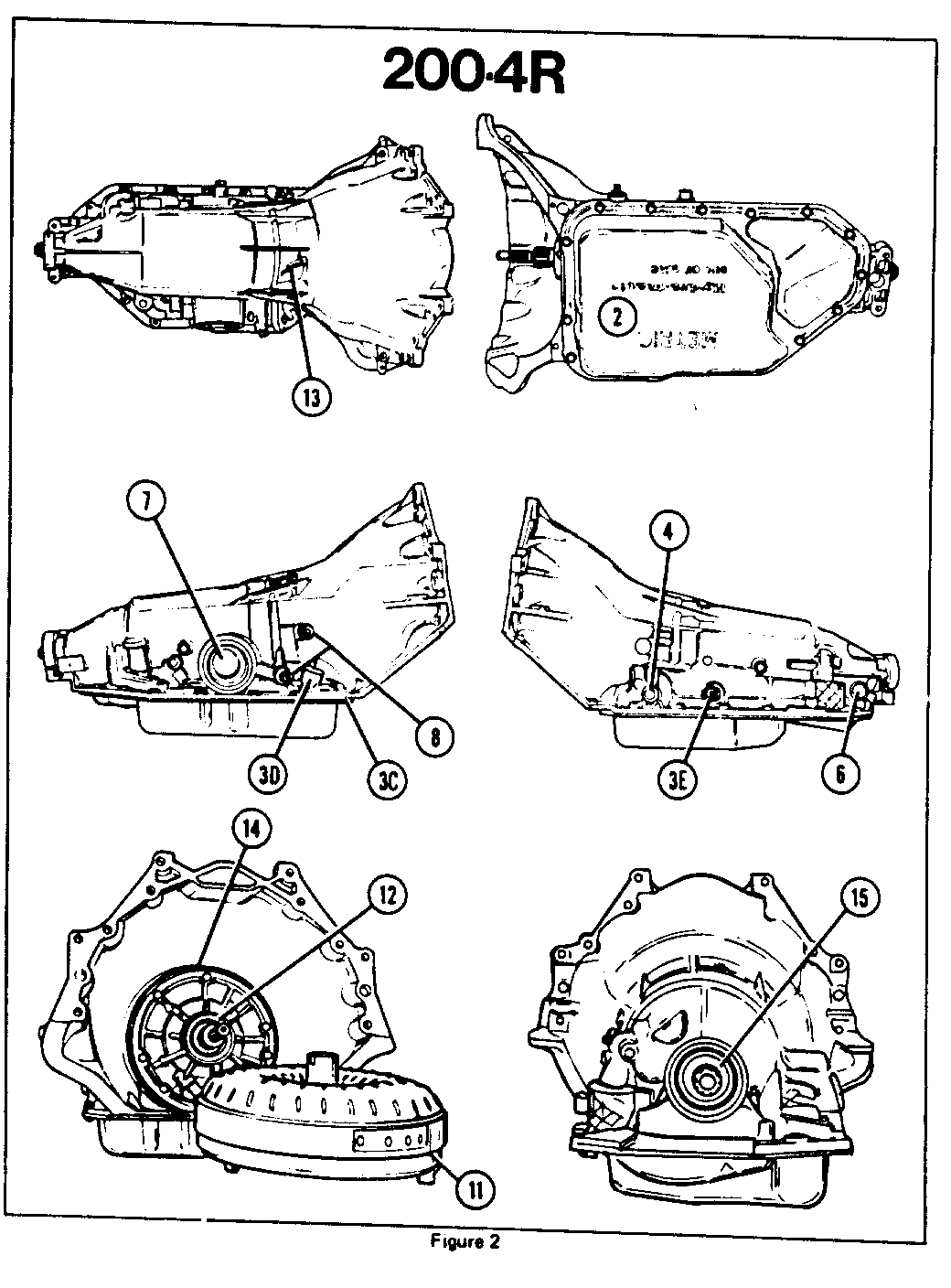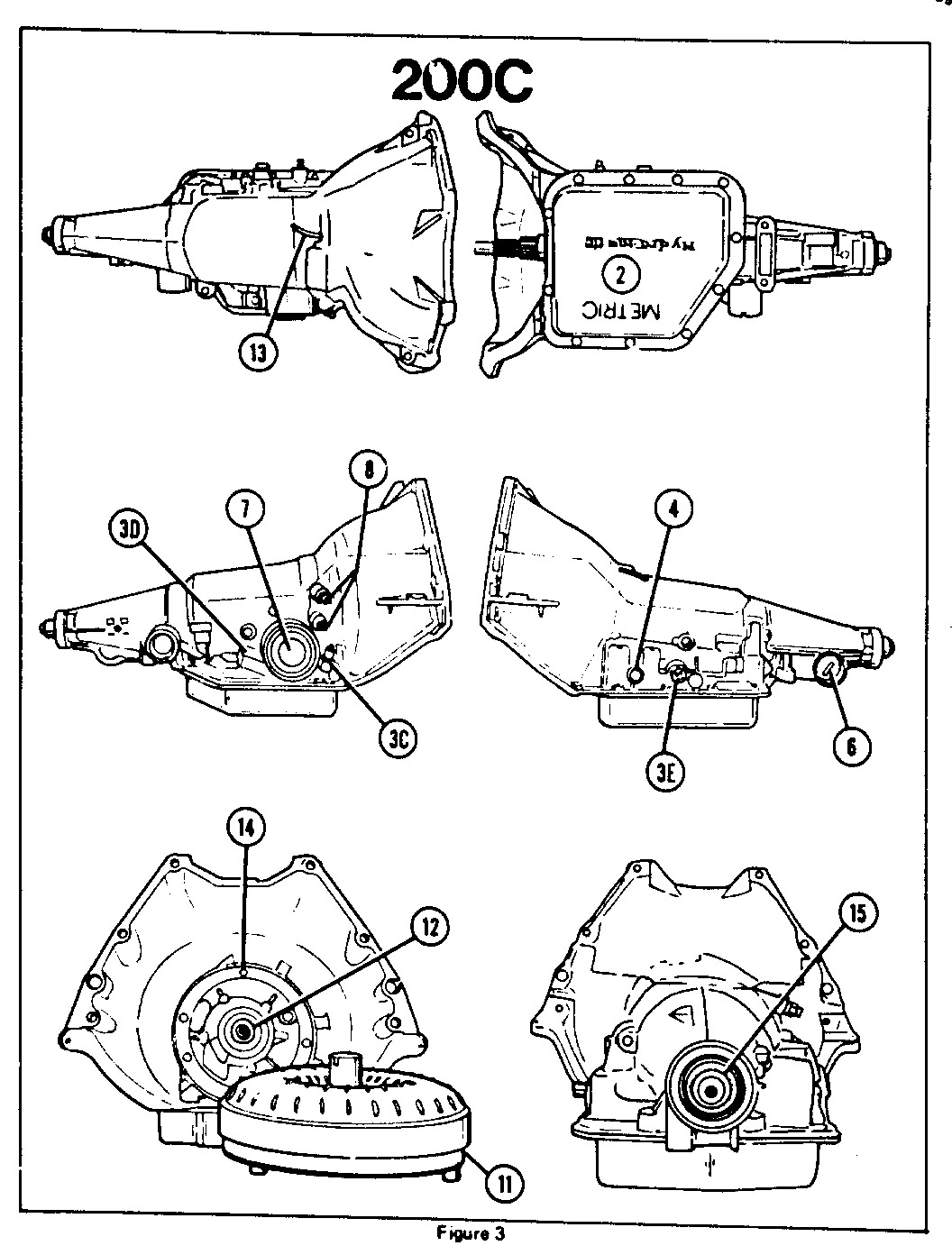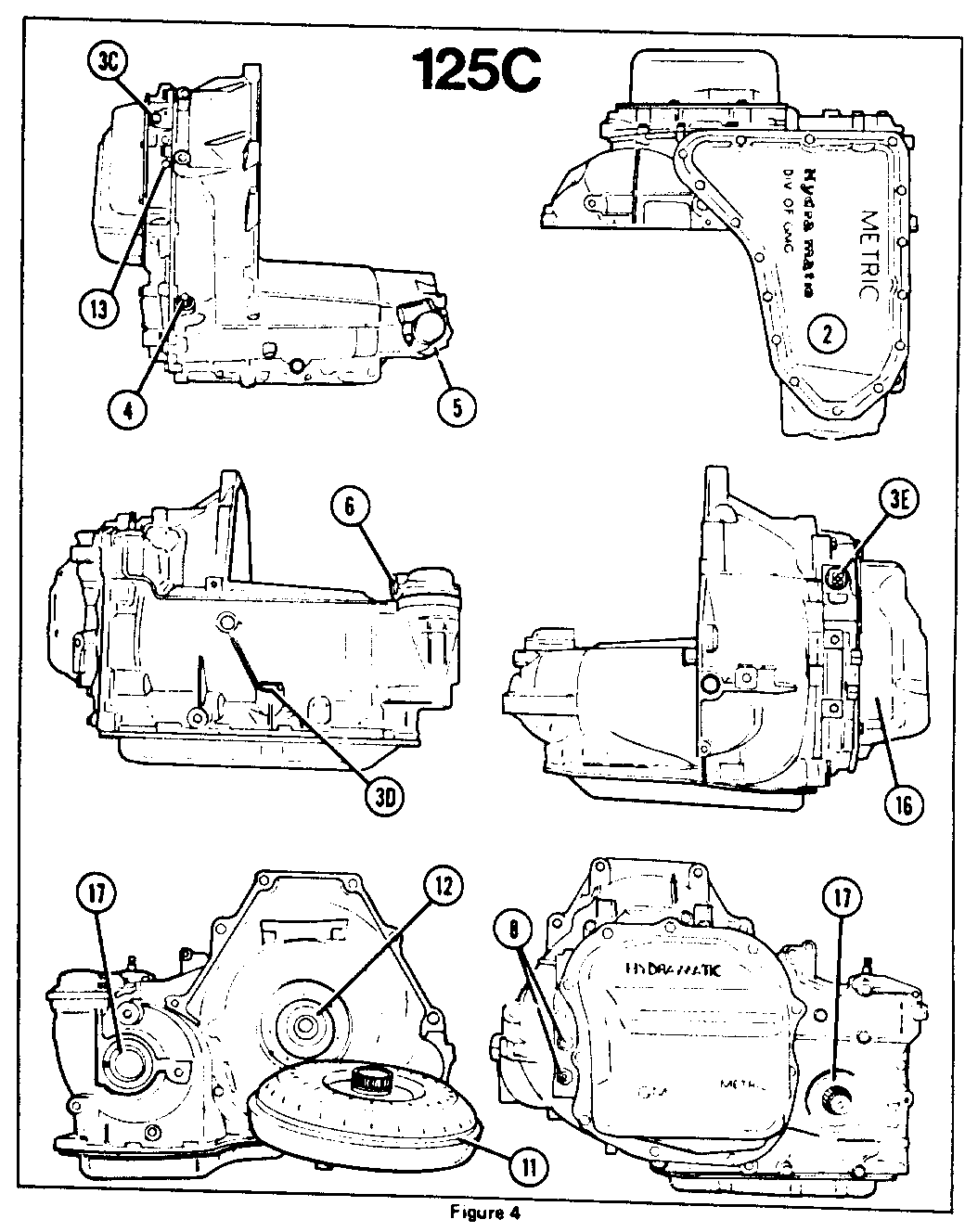THM TRANS OIL LEAKS USE TRACING POWDER/FIND LEAK

When any THM transmission oil leak is detected, it is very important that they are diagnosed properly, as to the location and type of leak. The following procedure will help in diagnosing the type and location of the leak and will suggest a correction method.
DIAGNOSIS PROCEDURE:
(All Models)
The following procedure can be performed on car.
1. Clean all residual oil from the transmission, concentrating on the transmission oil pan to case mating areas (all models), T.V. cable connector (all models), transmission oil pan to sprocket cover interface area (325-4L model), final drive to case connection (325-4L model), and valve body cover to transmission oil pan interface area (125C model) (C.R.C.'s electramotive cleaner, or equivalent is recommend).
2. Dust the entire transmission with a white powder. (e.g. Leak Tracing Powder or Foot Powder Spray).
3. After normal operating temperature (1700F) has been obtained, let the transmission stand for at least (30) thirty minutes.
4. Inspect the transmission for leakage by following red oil traces left in the powder. (If residual oil is left on the transmission oil pan or sprocket cover, it will necessitate the cleaning and dusting procedure to be repeated.)
5. Once the leak has been diagnosed as to location and type (wetness, moist, damp, etc.) Refer to the following repair procedure:
REPAIR PROCEDURE:
ALL MODELS (FIGURE 1, 2, 3, & 4)
ITEM PART NAME LEAK CAUSE CORRECTION
2 Transmission Oil Low Bolt Torque Retorque and Recheck Pan Bolts
Gasket Leak Remove and Replace Gasket
Broken R.T.V. Bead Remove Cover and Reseal with R.T.V.
3 T.V. Cable Connector Cocked Remove Connector and Connector "C" and interfering with Reinstall mount Seal Damaged Remove and Replace Seal Connector Cracked Remove and Replace Cable Fill Tube "D" Seal Missing or Remove Fill Tube and Damaged Replace Seal Electrical "O" Ring Missing or Remove Connector and Connector "E" Damaged Replace Seal Connector Missing or Remove and Replace Damaged Connector 4 Manual Shaft Seal Assembly Remove and Replace Seal Damaged 5 Governor Cover "O" Ring Damaged Remove and Replace "O" Ring Low Bolt Torque Retorque Bolts and Recheck
6 Speedo Fitting Low Bolt Torque Retorque Bolt and Recheck
Seal Damaged Remove and Replace Seal 7 Servo Cover "O" Ring Damaged Remove and Replace "O" Ring
8 Cooler Fittings Low Fitting Torque Retorque Fitting and Recheck
Cracked Fitting Replace and Retorque Fitting 11 Converter Assembly Hub or Seam Weld Remove and Replace Leak Converter 12 Converter Seal Seal Damaged Remove and Replace Seal 13 Vent Leaking Check for the following and correct as necessary
A) Oil Overfill B) Blocked Drainback holes in sprocket support C) Engine Coolant in oil
325-4L ONLY (FIGURE #1) ------------------------ ITEM PART NAME LEAK CASE CORRECTION
1 Sprocket Cover R.T.V. Bead Broken Remove Cover and Reseal with R.T.V.
Cracked Cover Replace Cover Corner "A" Leak Past Design Case- Drill thru and Add Nut, Bolt & Lock Washer
Corner "B" Leak Remove Cover and Reseal with R.T.V.
9 Case Face to Low Bolt Torque Retorque Bolts and Final Drive Recheck
10 Case Face to Plug Loose Remove Plug and Replace Final Drive (Leaking) (Loctite Plug) Governor Cover
Plug High Drive Plug into Case Below Face Surface
125-C ONLY (FIGURE #4) ----------------------- 16 Valve Body Cover Low Bolt Torque Retorque Bolt and to Case Assembly Recheck
R.T.V. Bead Broken Remove Cover and Reseal with R.T.V. Gasket
Gasket Leak Remove Gasket and Replace
17 Axle Shaft Seals Seals Damaged Remove Seals and Replace
200-C AND 200-4R ONLY (FIGURES 2 & 3 ------------------------------------- 14 Pump Assembly Pump Bolts Loose Retorque Bolts and Recheck
Pump "O" Ring Cut Remove "O" Ring and or Damaged Replace
Pump Porosity Replace Pump
15 Rear Extension Torn or Damaged Remove Seal and Replace Seal




General Motors bulletins are intended for use by professional technicians, not a "do-it-yourselfer". They are written to inform those technicians of conditions that may occur on some vehicles, or to provide information that could assist in the proper service of a vehicle. Properly trained technicians have the equipment, tools, safety instructions and know-how to do a job properly and safely. If a condition is described, do not assume that the bulletin applies to your vehicle, or that your vehicle will have that condition. See a General Motors dealer servicing your brand of General Motors vehicle for information on whether your vehicle may benefit from the information.
